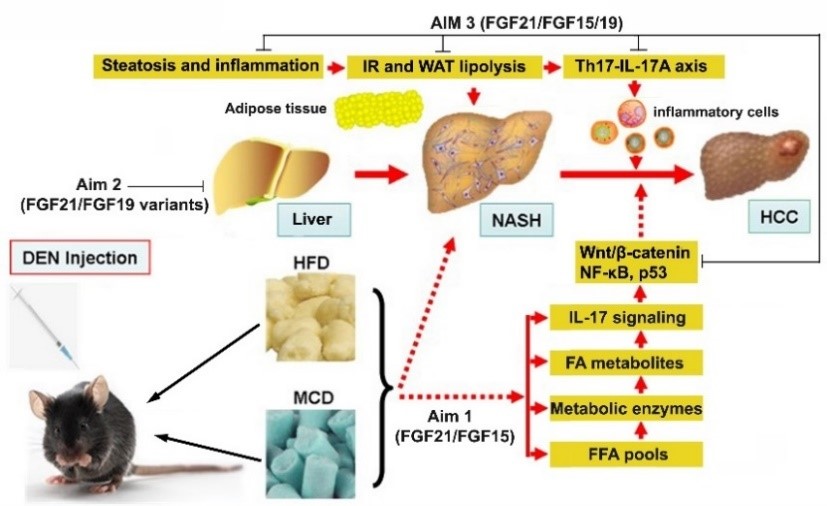Molecular mechanisms of non-alcoholic steatohepatitis-associated HCC and prevention strategies
Overview:
Nonalcoholic steatohepatitis (NASH) is the most severe form of non-alcoholic fatty liver disease (NAFLD) and a potential precursor of hepatocellular carcinoma (HCC). HCC has been recognized increasingly in NASH patients before the cirrhosis stage. Using a Markov model to forecast NAFLD progression, NASH is predicted to increase 27%, while the incidence of HCC will increase 137% by 2030. The basis of NASH-related carcinogenesis remains largely unknown; however, early treatment may determine long-term NASH prognosis. Problem: NASH is a high-risk factor for the development of HCC, but NASH currently has no FDA-approved treatment.

Hypothesis:
Our central hypothesis is that FGF21 and FGF15/19 prevent NASH-HCC through, in turn, controlling lipolysis, clearing excessive FFAs, and inhibiting the IL-17A signaling mediated inflammation and carcinogenesis. Our ultimate goal is to seek a novel strategy of NASH-HCC therapy for clinical application.
Yan Li, MD, PhD
Education:
MD, Liaoning University of Chinese Medicine
MS, Liaoning University of Chinese Medicine
PhD, ChenDu University of Chinese Medicine
